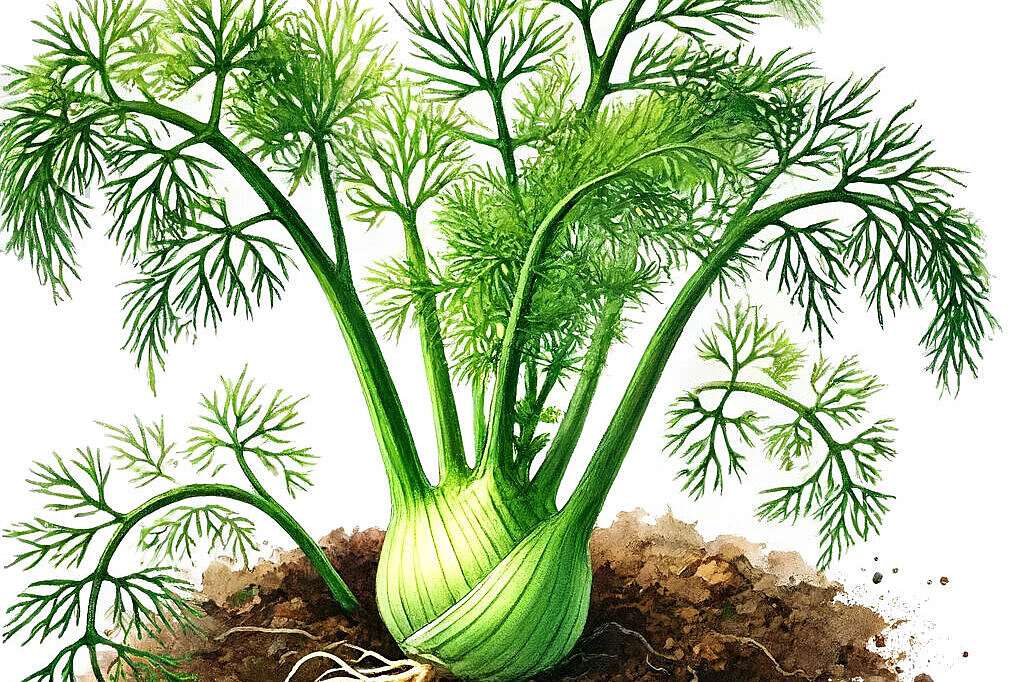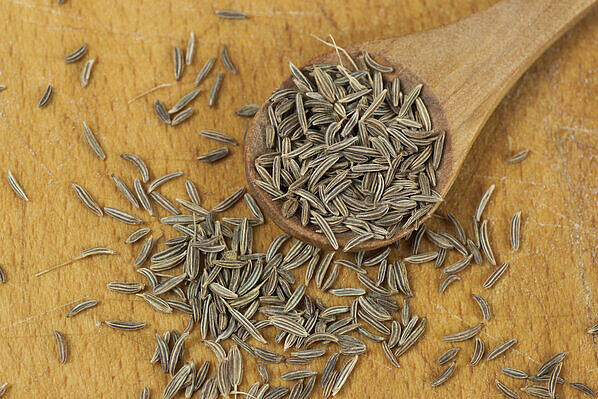Aniseed

What is aniseed?
Anise belongs to the umbellifer family and is related to fennel, caraway and dill. The plant has white flowers and small, brown seeds that have a sweet, licorice-like taste. Aniseed originates from the Mediterranean region and has been used as a medicinal and spice plant for thousands of years. Aniseed contains various ingredients such as protein, fatty oil, essential oils, phenolcarboxylic acid and flavonoids.
How does aniseed affect dogs?
Aniseed has different effects on dogs, depending on how much and how often they eat it. Aniseed can have an intoxicating effect on dogs, similar to catnip on cats. This is due to the essential oil anethole, which stimulates the senses and triggers a euphoric mood. However, aniseed does not have the same effect on all dogs and some show no reaction to it at all.
Aniseed can also promote good health in dogs when given in moderation. Aniseed can strengthen the respiratory and digestive systems as it has an expectorant, antispasmodic, flatulent and appetite stimulating effect. Aniseed can also help repel lice, ticks and fleas, as it has an odor that these parasites do not like.
What are the benefits and disadvantages of aniseed for dogs?
Aniseed can have many benefits for dogs if used correctly. For example, aniseed can be used as a home remedy for loss of appetite, difficulty falling asleep, coughing, flatulence or diarrhea. Aniseed can also be added to food or given as a treat to improve the taste and aid digestion.
However, aniseed also has some disadvantages that you should be aware of. Aniseed can cause side effects such as nausea, vomiting, diarrhea or allergic reactions in dogs if it is given in too large quantities or too frequently. Aniseed can also interact with other medications or herbs and strengthen or weaken their effect. Aniseed should therefore not be given without consulting a vet, especially if the dog is pregnant, nursing, ill or very young.
Aniseed is a spice with many effects for dogs, which can be both positive and negative. Aniseed can improve the health and well-being of dogs, but can also lead to problems if it is incorrectly dosed or combined. Aniseed should therefore always be used with caution and responsibility to get the best out of it for the dog.
Properties 6
Are you looking for other ingredients with a specific property?
Just click on them to find more.
If you notice any signs of hypersensitivity or poisoning in your dog, you should see your vet immediately. We are not a substitute for a vet, but we try to be as accurate as possible. Every dog reacts differently and we recommend you get a second opinion or consult your vet if in doubt.
Stay healthy and take good care of your four-legged friend!😊
Similar to Aniseed
Fennel consists of three parts: the bulbous fennel, the fennel green and the fennel seeds. The bulbous fennel is the thickest part of the plant, which looks like a bulb and has a sweet taste. The...
Caraway (Carum carvi) is a plant from the umbellifer family, which also includes fennel, aniseed, coriander and carrots. Caraway grows on roadsides and meadows and has white to pink flowers that...
Coriander, also known as Chinese parsley or coriander leaves, is a plant that is used as a spice in many parts of the world. The plant belongs to the umbellifer family and has delicate, green leaves...
Star anise (Illicium verum) is an evergreen plant that grows in the tropical regions of Asia. The fruits of the plant are star-shaped and each contains one seed. The fruits are dried and used whole...



